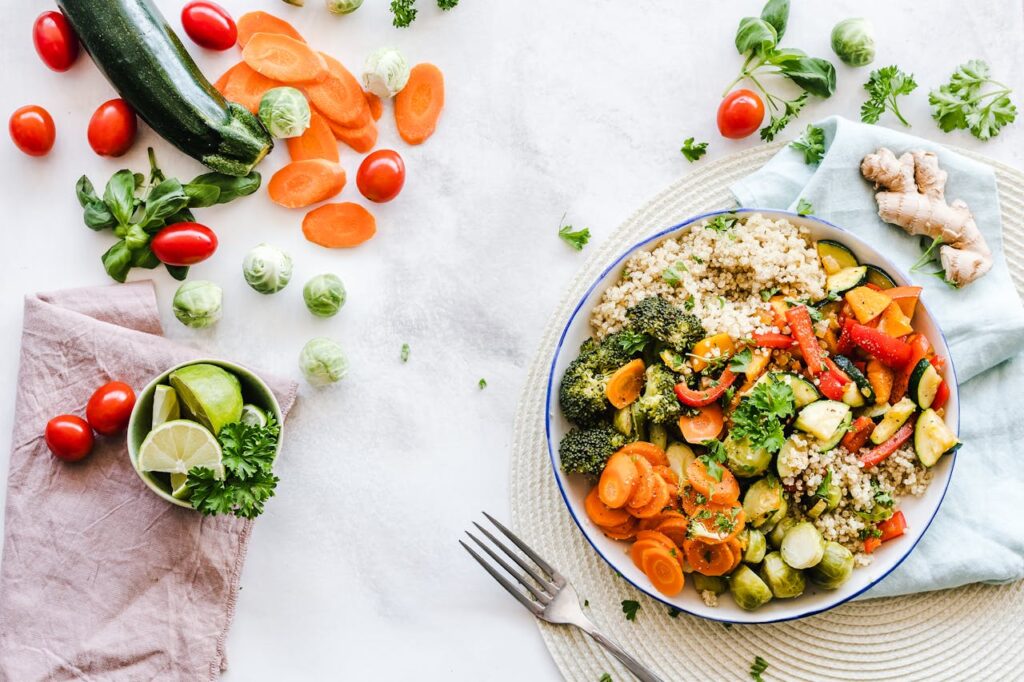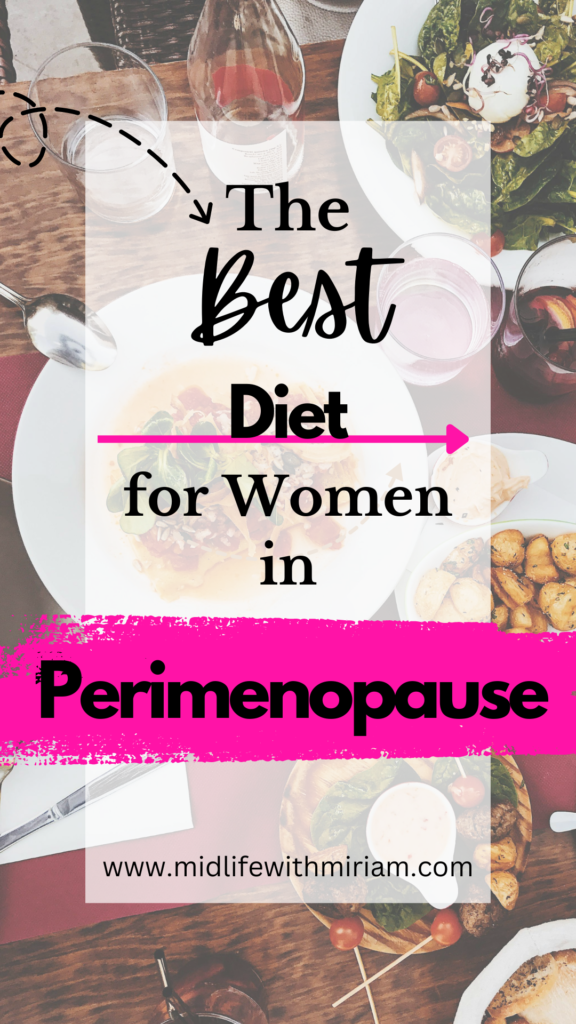What Foods Can You Add To Your Diet in Perimenopause To Feel Your Best

Growing up during the 80ies and 90ies I was heavily influenced by diet culture. My mom always had the latest diet books and at some point, she encouraged me to go on a diet with her (yikes!). For a long time in my life, I was treating my body like an enemy, starving it, restricting or cutting out specific foods. When I started having digestive issues due to a helicobacter pylori infection in my early twenties things just got more complicated. Things got a bit more relaxed in my late twenties but a few years after we’ve moved to the US from Germany I started having digestive issues again, and this time it was worse. After this went on for a few months my husband dragged me to see a doctor. I had an amazing primary care physician at that time, and she referred me to a naturopath who specializes in digestive issues. Shortly after I got diagnosed with SIBO and started treatment. I remember cutting out different foods at that time, because I didn’t know what was upsetting my digestive tract. At some point I got tired. I didn’t like to feel restricted and my relationship with food started changing for the worse. Fast forward a few years, I feel so much better now. I still have digestive issues sometimes, but it’s way less often than it used to be. What has changed? I have optimized my mindset and my diet for perimenopause. The best part: it is not about restriction. If you’ve ever asked yourself what foods you can add to your diet to feel your best in perimenopause, let’s dive in! First, let’s talk about why your diet plays such an important role, especially during perimenopause.
Why Your Diet Plays a Significant Role in Managing Perimenopause Symptoms
Diet plays a significant role in managing perimenopause symptoms by influencing hormone levels, reducing inflammation, and supporting overall health. Here’s how specific dietary choices can help:
1. Regulating Hormones
Foods like soy, flaxseeds, and legumes contain phytoestrogens, which can help balance estrogen levels, potentially alleviating symptoms such as hot flashes and night sweats.
2. Supporting Bone Health
Calcium and vitamin D are important for bone health. Adequate intake of calcium-rich foods, like dairy products or leafy greens, and vitamin D from fatty fish or fortified foods, help maintain bone density and reduce the risk of osteoporosis.
3. Managing Weight
Whole grains, fiber, and protein are all great to add more of to your diet. Fiber not only promotes satiety it also provides fuel for the good bacteria in your gut. Research has found that a healthy gut lowers the risk of ovarian cancer and depression. Fiber can also lower your cholesterol levels. As we get older our lean muscle mass can decrease, while body fat increases. By increasing your daily protein intake it can not only help you manage your appetite, but may also reduce your body fat and helps maintain lean muscle mass.
4. Reducing Inflammation
When your estrogen levels decline your arteries become less flexible, which increases your risk of heart disease. You can protect your heart by including anti-inflammatory foods into your diet. Foods like berries, leafy greens, nuts, seeds, and fatty fish, that is rich in omega-3 fatty acids can reduce inflammation, but also potentially alleviate joint pain and mood swings.
5. Enhancing Mood
Food rich in B vitamins like whole grains, eggs, and nuts, and foods rich in magnesium like dark chocolate, avocados, or spinach, can help support brain health and reduce symptoms of anxiety and depression.
6. Improving Sleep
Consuming tryptophan-rich foods like turkey, nuts, and seeds can promote the production of serotonin and melatonin, which will improve your sleep quality.
7. Boosting Energy
Ensuring adequate intake of iron-rich foods like lean meats, legumes, fortified foods, can help combat fatigue, which is a common symptom of perimenopause.
Focusing on a balanced diet can definitely help you manage many of the symptoms associated with perimenopause, which will improve the quality of life during this transitional period.

The Non-Restrictive Diet Mindshift
This simple mindshift has changed everything for me. Instead of cutting out food or restricting yourself, think about what you could add to your diet. Restriction creates a feeling of lack and poses the risk that you end up obsessing about the food that you think you cannot have. For example, let’s say you love chocolate, but you think it’s unhealthy and bad for you and therefore you think you need to cut it out of your diet. I think it’s counterproductive to cut it out of your diet, because you might end up obesessing over the food you think you cannot have. Food is more than diminishing your physical hunger, and nourishment for your body. It’s pleasure and comfort, nourishment for your soul. Think about what you could add to your chocolate. Maybe a high protein yogurt, with some berries and some chocolate chips on top? This way you get your chocolate, but also protein, calcium, and anti-inflammatory berries. If you like dark chocolate, you’ll get some magnesium too. Or let’s say you like chips. Add some veggie sticks, some hummus and turkey. There are so many great combos to try with your favorite foods and it’s fun to create new ones. This helped me so much to get a good relationship with food again! I never feel like I am depriving myself of something. I am not obsessing about specific foods, because I know, if I want it, I can have it.
I hope this helps! Let me know which combos you want to try 🙂
